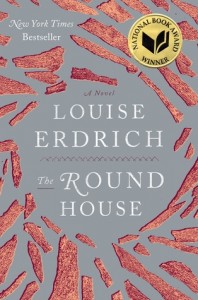 Title: My Notorious Life by Madame X (Goodreads)
Title: My Notorious Life by Madame X (Goodreads)
Author: Kate Manning
Published: Bloomsbury, 2013
Pages: 438
Genres: Historical Fiction
My Copy: ARC from Publisher
Buy: Amazon, Book Depository, Kindle (or visit your local Indie bookstore)
Based on the life of Ann Trow, better known as Madame Restell, an abortionist in Victorian New York City. My Notorious Life by Madame X is the journal of Axie Muldoon found in an attic that tells the story of a daughter of an Irish Immigrant who was orphaned (with her brother and sister) as a child. The kids were broken up and Axie went on to work as a maid and then assistant to a midwife and abortionist. Here she learnt the tricks of the trade, from the lunar tonics (for relief of female complaints), midwifery and abortions.
This is a fictionalised story of what Madame Restell might have gone through. For Axie she witnessed first hand the trials women go through, from period pains all the way to a pregnancy that will bring shame to their family. In an age before any real understanding of women’s fertility cycles and contraception, pregnancy can mean the final days for a woman. Even for Axie, she was too afraid to have sex for the fear of dying.
Axie Muldoon is a stubborn and fiery woman, who stands firm in her beliefs and won’t stop helping women even when the papers and police are after her. I like the way that this novel didn’t suggest abortion as the answer; Axie often would try to help woman in other ways before resorting to such a drastic measure. There are a lot of interesting ideas on Victorian feminism and this novel tries to explore this, and is often successful at this.
An epistolary novel that explores Axie Muldoon’s life in the form of journal entries meant that you get an insight into what made her tick and motivated her. I really enjoyed the insights and what happened in this novel will both shock, disturb and get you thinking. Without going into my opinions on abortion, I have to say that this book is more a look at how women were treated in Victorian times and the understanding of women. This is what I got out of this book and what makes this one worth reading.
I’m not saying this was a great book; it was seriously flawed but there was some interesting topics explored. I can’t say I enjoyed this one; I often felt it dragged on and Axie’s husband really bothered me. There were fragments in the book that felt came together too cleanly and personally I prefer some untidiness or unresolved tension. I would say I’m happy it was an interesting book but not going to actively recommend this one to people.

 Title: The Amazing Adventures of Kavalier & Clay (
Title: The Amazing Adventures of Kavalier & Clay ( Title: A Constellation of Vital Phenomena (
Title: A Constellation of Vital Phenomena ( Title: The Round House (
Title: The Round House ( Title: TransAtlantic (
Title: TransAtlantic ( Title: The Reader (
Title: The Reader ( Title: Burial Rites (
Title: Burial Rites ( Title: Life After Life (
Title: Life After Life ( Title: A Treacherous Likeness (
Title: A Treacherous Likeness ( Title: The Son (
Title: The Son (